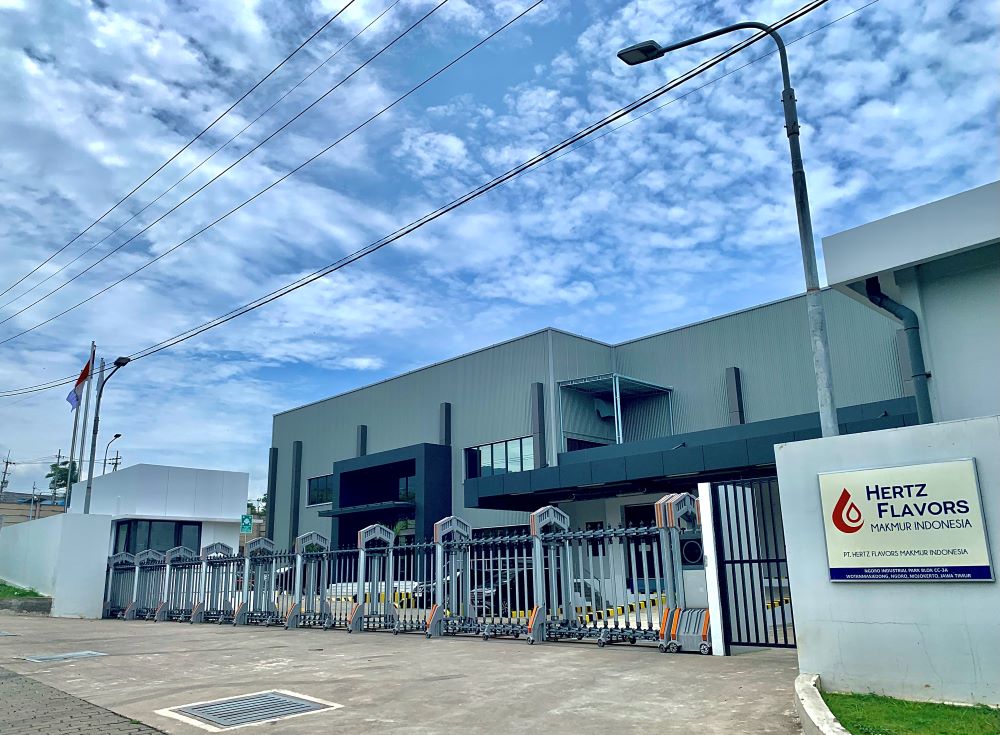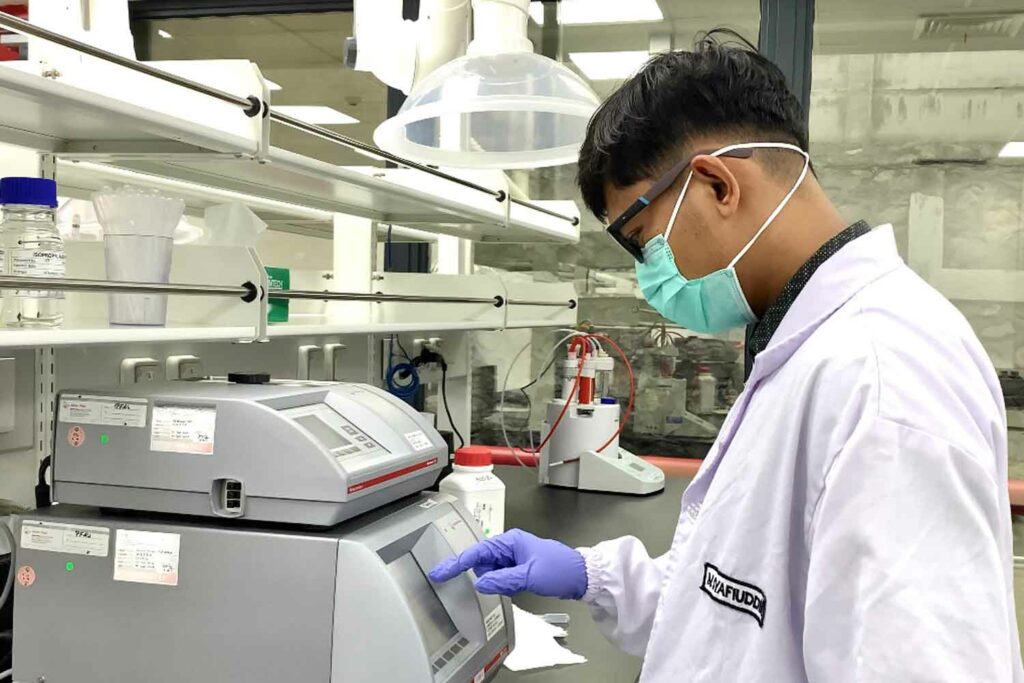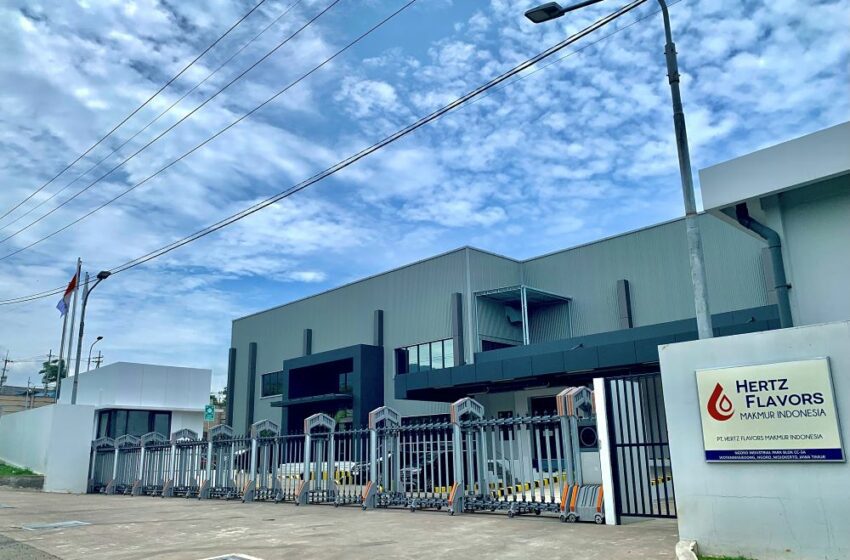
Hertz Flavors celebrates its first year of operating in Indonesia.
By Taco Tuinstra
Visiting Indonesia is a multisensory experience. Breathtaking landscapes, bustling traffic and a spicy cuisine will keep the traveler’s eyes, ears and taste buds working overtime. And for the nose, there is the sweet scent of clove tobacco. Kretek cigarettes are almost as synonymous with Indonesia as the country’s ancient temples and majestic volcanoes.
Contrary to the situation in many other countries, tobacco remains unabatedly popular throughout the archipelago, with a substantial share of the adult population lighting up frequently. Indonesia is also a leading producer of leaf tobacco and cigarettes. In 2022, the country’s tobacco growers harvested 225.58 million kg of leaf, and its cigarette companies purchased excise stamps for more than 330 billion sticks, according to the Ministry of Agriculture and the association of white cigarette producers in Indonesia, Gaprindo, respectively (the country also struggles with a sizable illicit market). Vapor and tobacco-heating products have been making steady inroads too lately, especially in urban areas.
Against such a backdrop, it is hardly surprising that industry suppliers have been lining up to set up shop in the country, either to be in closer proximity to domestic manufacturers or to supply international customers—or both. The leading tobacco equipment manufacturers and leaf merchants have been present for some time, and others continue joining their ranks. In June 2022, for example, Smoore Technology, a prominent atomization company serving the global vape market, inaugurated a factory in Malang to supplement its manufacturing base in China (see “Peace of Mind,” Tobacco Reporter, June 2022).
The prevalence of kretek cigarettes, with their complex blends, makes Indonesia an attractive destination, especially for flavor houses. Kretek cigarettes typically contain casings and top flavors with elements such as fruitiness, sweetness, sourness and spiciness. The products on the market are characterized by highly characterizing flavors and strong pack and stick smells along with sophisticated smoke streams. The virtually unlimited combinations of flavors on the market, in combination with Indonesian smokers’ receptiveness to new experiences, makes Indonesia a flavorist’s paradise.
Alert to opportunity, Hertz Flavors of Germany last year inaugurated a $5 million state-of-the-art factory in Mojokerto, East Java, located at only 40 km, or one hour’s drive, from the port of Surabaya and in close proximity to the majority of cigarette manufacturers in Indonesia.
According to Ferdinand Baturusa, president director of Hertz Flavors Makmur Indonesia, the decision to build a local facility was a no-brainer. “The popularity of kretek, both domestically and internationally, has made Indonesia the second biggest market for tobacco flavors in the world—clearly a location we want to be present in,” he says.
With an annual production capacity of 1 million kg, depending on product mix and complexity, the Indonesian plant has significantly boosted Hertz Flavors’ global footprint. The company also manufactures flavors in Hamburg and operates a sales and innovation center in Dubai under the name Flavoriq, which focuses on the vaping market. In addition, it maintains a significant international presence through agents and partnerships.

Baturusa says the Surabaya plant underscores Hertz Flavors’ dedication to upholding top-notch standards in its operations. The facility has been certified ISO 9001 and HACCP in recognition of its systematic approach to quality management and the safety of its products, respectively. ”This accomplishment sets us up to enter the marketplace and provide the best products and services to our Indonesian customers,” says Baturusa.
Aside from following best industry practices, Hertz Flavors adheres to strict internal quality and compliance standards. “We use our knowledge from almost 70 years of our experience to develop products according to international regulations and with a focus on performance and risk reduction,” says Baturusa, adding that Hertz Flavors will also accommodate individual customers’ preferences.
Constructing a factory in a new country 11,000 km away from its home base naturally presented a considerable challenge for a medium-sized firm like Hertz Flavors, but with the help of its skilled and knowledgeable local team, the company successfully navigated the obstacles. Local authorities, too, accommodated the project. Baturusa says he is encouraged by Indonesia’s commitment to reforming the investment climate to make it a safe and attractive destination for businesses looking to set up shop in the country.
In addition to strengthening Hertz Flavors’ global capacity, the investment has boosted the local economy. The Indonesian plant currently has a workforce of more than 30 people with a variety of geographic and educational backgrounds. According to Baturusa, Indonesia’s young and capable workforce, combined with the country’s improving global profile, represents considerable competitive strengths internationally. “As [a] German-speaking Indonesian with a university degree from Berlin, I personally think that this German-Indonesian culture fusion is a great mix,” he says.
The skills and diversity of its Indonesian team will serve Hertz Flavors well as it caters to Indonesian smokers’ discerning palettes. According to Baturusa, current local tobacco trends include fruity and minty flavors (delivered with or without capsules) along with apple, grapes and mango. Tea-flavored products, too, have a wide following in Indonesia as do cigarettes that taste like traditional local sweets, such as ludou and taro (sweet potato).
In cooperation with its vape specialists at Flavoriq, Hertz Flavors is also developing innovative flavors for Indonesia’s vape segment, which has grown considerably in recent years. “Together, we also create customized flavors for this unique market and exclusive solutions for our local customers,” says Baturusa. “Depending on demand, our Indonesian factory manufactures these products also locally.”
Buoyed by the success of its first year in Indonesia, Hertz Flavors is keen to keep growing. For the time being, it intends to focus on domestic sales. “Our main priority is currently the Indonesian market,” says Baturusa. “Indonesia is one of the largest and most vital and innovative tobacco markets worldwide, and we strive to fulfill the necessities and desires of Indonesian customers and cigarette producers. Our commitment is to produce excellent flavors for tobacco and adjacent products and items that comply with the Indonesian market’s exceptional tastes and requirements, resulting in our expanding achievements in this important market.”
The greatest challenge, according to Baturusa, will be to maintain and improve product quality while ensuring a supply of high-quality raw materials. “Maintaining consumer trust and meeting industry standards depends heavily on product quality,” he says. “In addition, managing raw material resources for tobacco and flavoring ingredients is a significant challenge. In particular, raw material availability and pricing are critical. Manufacturers must uphold stringent quality controls throughout their supply chains while devising innovative solutions to overcome these hurdles.”
Dedication will be the key. Continued success, says Baturusa, will require leading innovation, staying ahead of trends and attracting the best people. It also involves looking beyond immediate corporate considerations, as Hertz is adamant that its growth will not come at the expense of the environment. “We feel responsible for the sparing use of resources on our planet and for preserving an intact environment—for present and future generations,” says Baturusa. “Our company takes a long-term view in all its activities to ensure the sustainability of our business. We believe in long-lasting partnerships, superior quality and first-class customer service.”












